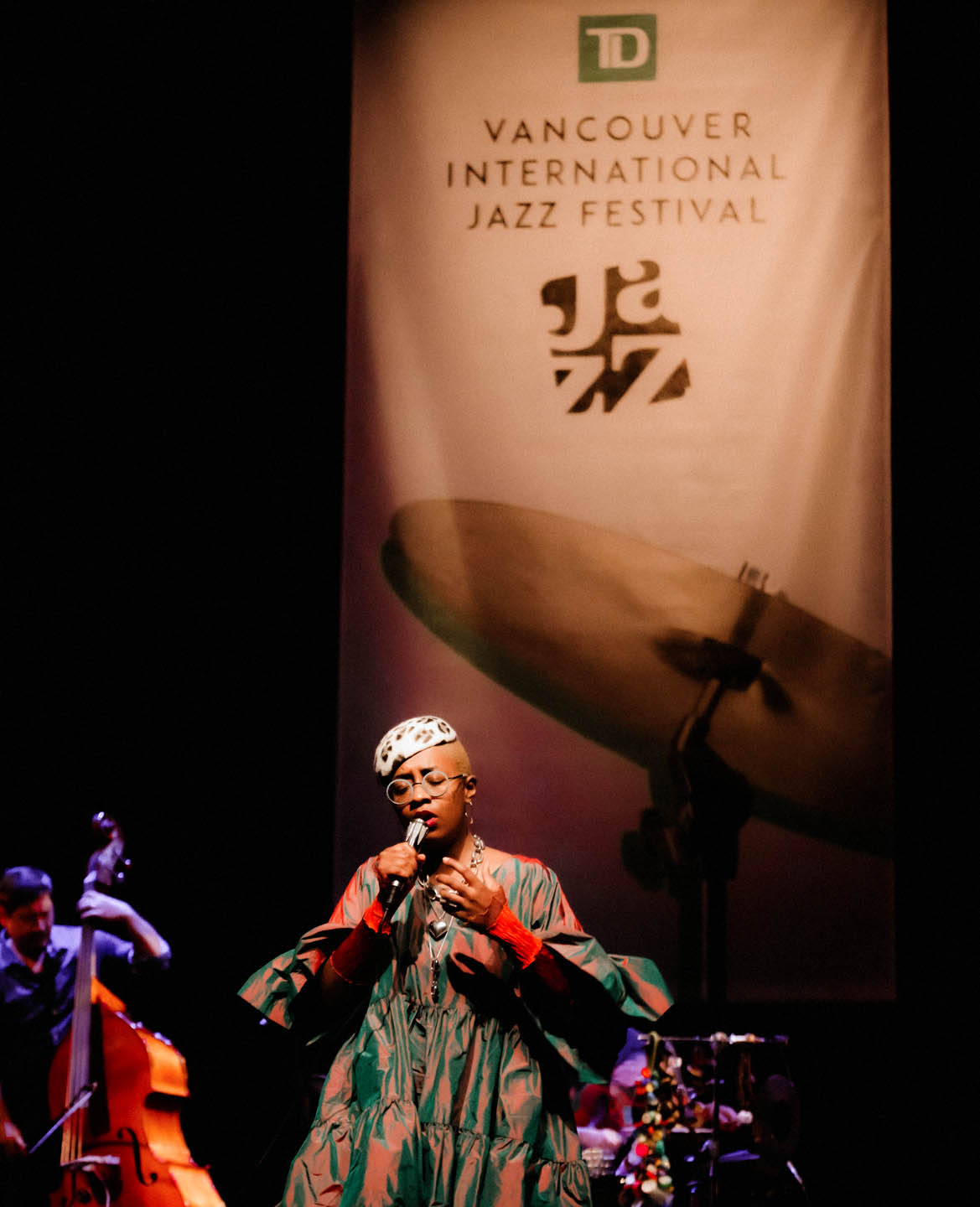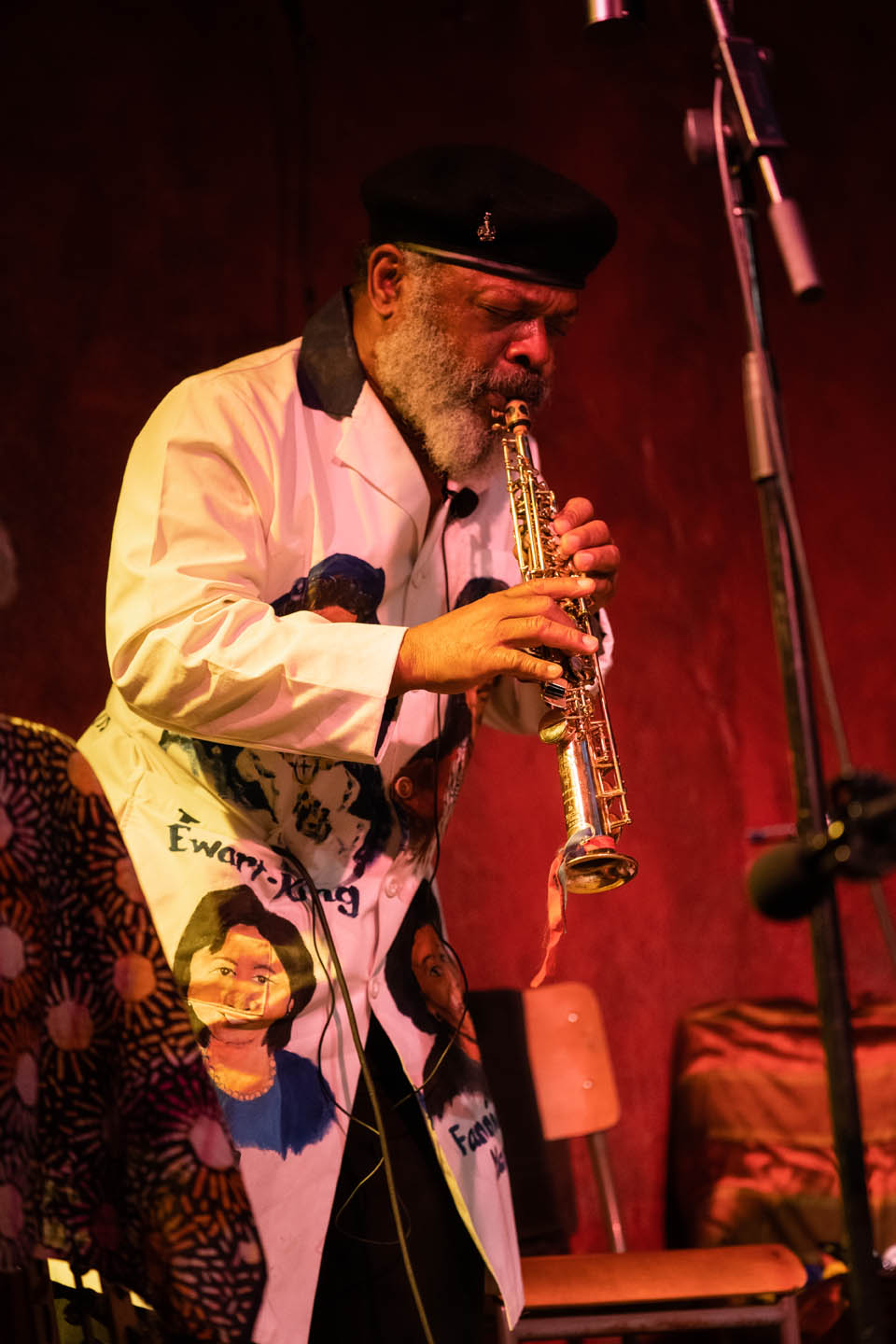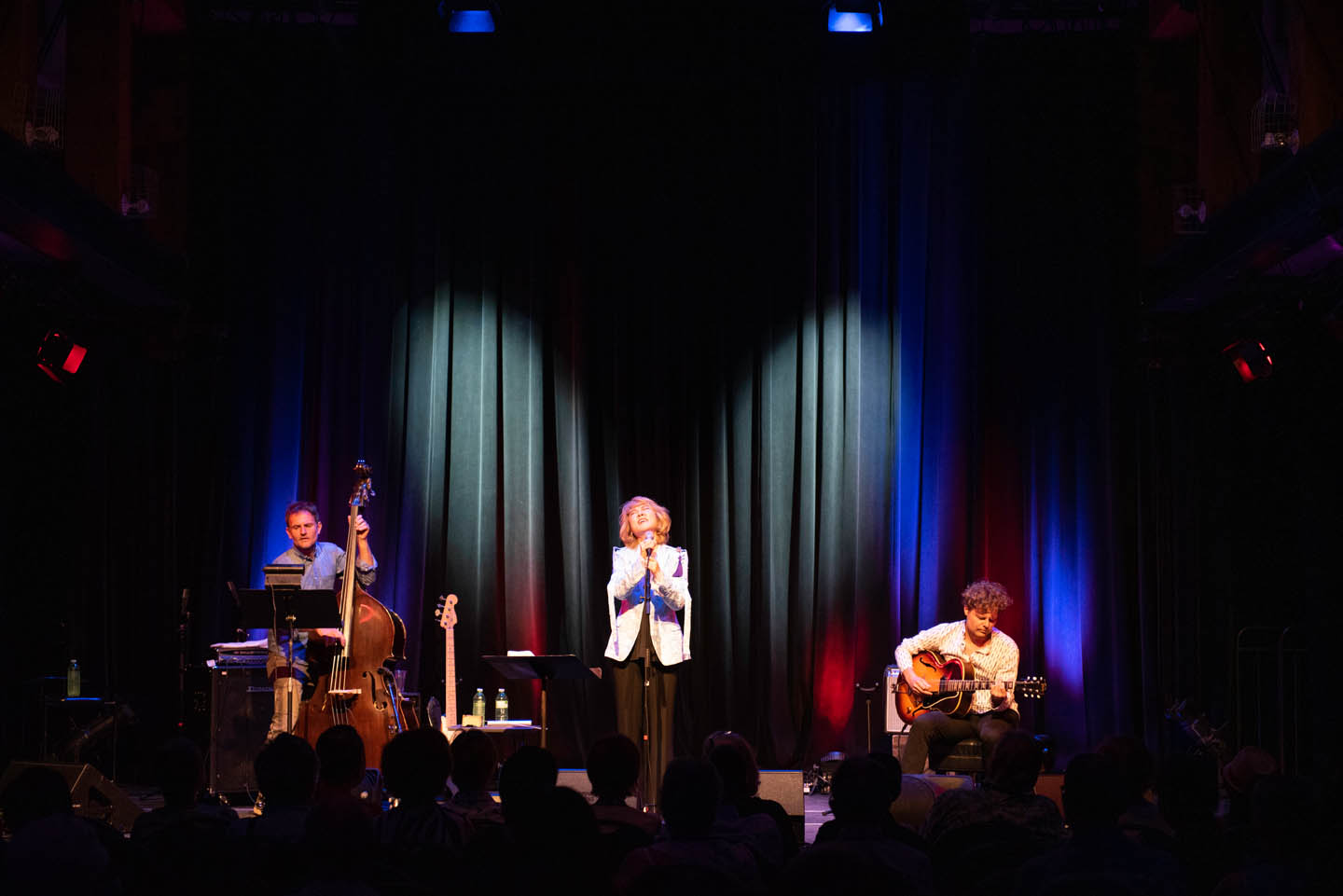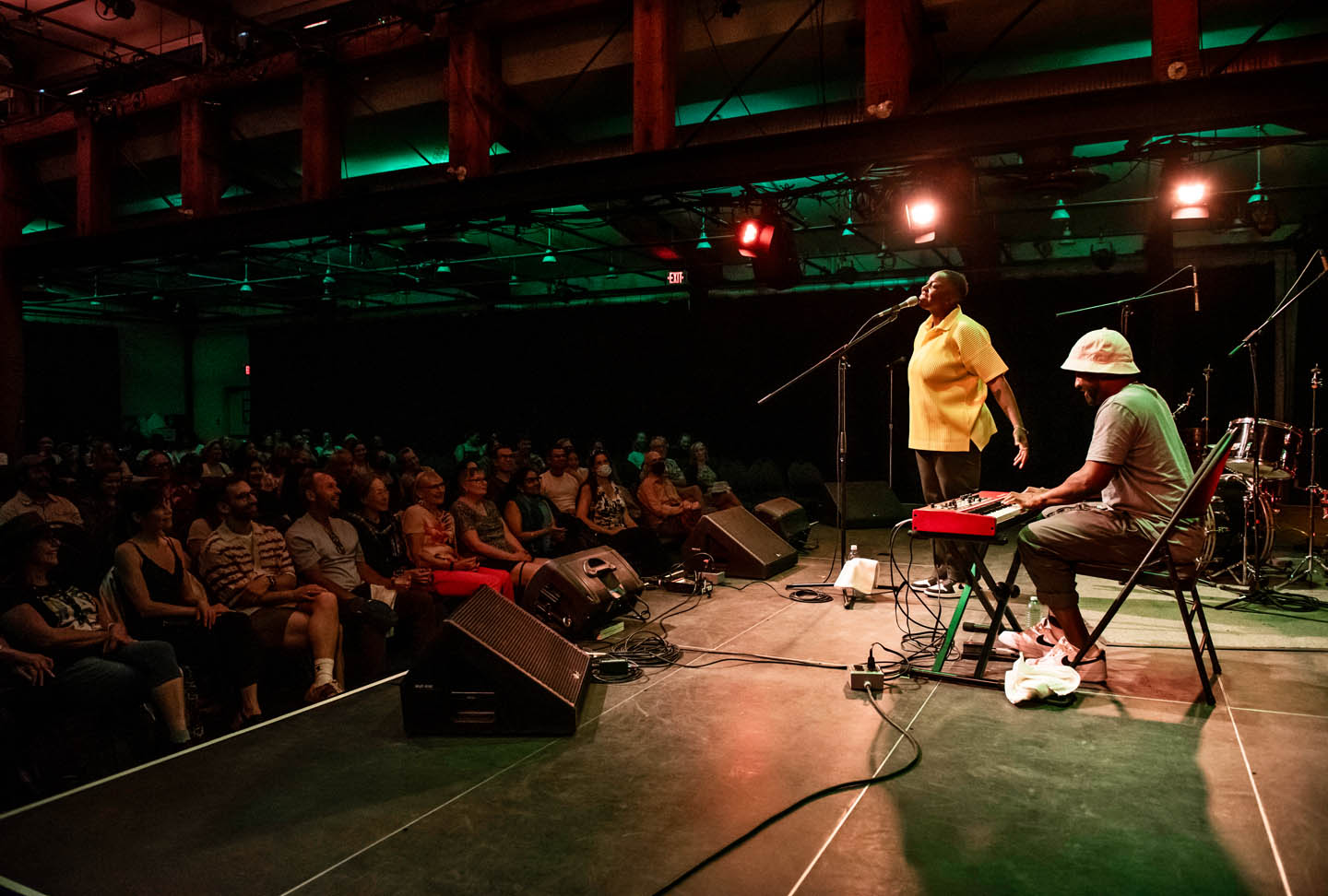The July sun had just fallen below the horizon at Jericho Beach Park. Roots music legend Ry Cooder played Woody Guthrie’s haunting classic “Vigilante Man” in the blue-black evening light, followed by some uplifting North Carolina soul with his backing band, the Hamiltones. The crowd was hushed, then ecstatic. Few suspected in 2018 that the Pacific Northwest had reached peak festival.
Down south that May at the Gorge on the Columbia River, David Byrne, Lizzo, and Tyler, the Creator graced the 17th annual Sasquatch! Music Festival. In June, Macy Gray and Led Zeppelin singer Robert Plant performed at the Vancouver International Jazz Festival. In September, the Skookum Festival debuted at Stanley Park’s Brockton Fields. Florence and the Machine, St. Vincent, and Metric played by the oceanside on a cool September Saturday night.
Now, nothing is the same. Will it ever be?
Skookum had no sophomore year. Sasquatch! never returned. In August 2018, the jazz festival lost its visionary co-founder, Ken Pickering, to cancer. Upheaval followed. The event’s lucrative title sponsor, TD Canada Trust, bailed last year, and this year a scaled-back festival cancelled its free weekend shows at David Lam Park. In January, the 44-year-old Vancouver Folk Music Festival almost evaporated when the board decided costs had grown so profoundly that it was impossible to continue. Festivals are trying to chart a way forward, and it’s not easy.
COVID-19 isn’t entirely to blame. Six years of site- and brand-building efforts at the Squamish Valley Music Festival (operating budget $15 million), by founding producer Brandlive and the music industry juggernaut Live Nation, ended in 2016. The competing upstart Pemberton Music Festival didn’t help. The New Orleans-based producers lost $47 million on the project in just three years, according to its bankruptcy filings.

Cécile McLorin Salvant performs at the 2022 Vancouver International Jazz Festival. Photo by Craig Sinclair, courtesy of Coastal Jazz & Blues Society.
In Vancouver, critical community cultural infrastructure has been built over decades by excellent festivals—music, film, and performing arts—that are often underappreciated outside their partisans. All face serious challenges. Daunting cost inflation led the folk festival board to ask the nonprofit society’s members to shut the event down for good. The board projected a 2023 revenue shortfall of about $460,000 for a $2-million budget, despite having no debt, after two years without a festival and then a scaled-back 2022 event.
The folk fest, however, was built through community, and that community’s reaction was visceral. The provincial government responded by fast-tracking a one-time $30-million funding program to support the recovery of festivals generally—the folk festival claimed $250,000. After a town hall festival meeting and a board election, organizers decided to go ahead with the event from July 14 to 16, despite an intimidating timeline.
Creating the previous year’s festival had been enough of a challenge. The cost of porta-potties increased dramatically. They almost didn’t get their fencing. Small suppliers, their businesses crushed by the pandemic, moved on to other things. Those that remained often demanded money up front, even though festivals get most of their revenue at the last minute.
Artist fees are up sharply, driven in part by a decade of escalating rates at large commercial festivals. In 2018, the Weeknd was reportedly paid $8 million to headline California’s Coachella Valley Music and Arts Festival.

Cabrava Now. Photo by Gen Monro.
Production costs have soared along with artist fees. “There is a threshold,” says Paul Runnals, a Brandlive founding partner and key producer. “The threshold has been blown out of the water.” Infrastructure is another challenge for destination festivals such as Squamish. “We decided to get out of the camping business,” Runnals says, with not a hint of regret, of the move to Stanley Park from Squamish.
Yet stability is key to a festival’s success, and it’s hard to raise money for unstable events. Runnals, whose organization produces the Honda Celebration of Light for the nonprofit Vancouver Fireworks Festival Society, assumed that job on uncertain footing a decade ago. Sponsors don’t like uncertainty, Runnals says, and building incremental revenue is key. This year, for example, fireworks watchers can buy one of the Concord Pacific Grandstand’s 1,832 seats for $62.70. At Skookum, one stage had a grandstand with several private boxes for 30 people, each box available for the weekend for $25,000.
At the folk festival this year, a revamped festival board has thrown itself into the unpaid work of pulling the event together without key staff.
Cost escalation has still been tough. Call it long COVID for the events industry. Runnals believes, however, there are signs that some kind of normal may return. “We’re not there yet,” he cautions. “I think there is another year or two of costs settling out.”
At the folk festival this year, a revamped festival board has thrown itself into the unpaid work of pulling the event together without key staff. Fiona Black, who programs Capilano University’s BlueShore theatre as well as the jazz fest’s North Shore Jazz Series, headed the programming committee for the folk festival as a volunteer board member. Jericho Beach Park will have its fences, and suppliers are agreeing to manageable payment schedules. The lineup is more modest than before the pandemic, though Aoife O’Donovan and Manitoba’s William Prince are ascendant stars.
Overall site experience and serendipitous discoveries, however, are a huge part of the festival experience. For community-focused nonprofits, access is another cornerstone. There will be no VIP booths at a folk festival sometimes controversially averse to sponsorship, but there will be decent seating for people with disabilities, and broad public access really matters. When the Vancouver festival’s crisis became public in January, Edmonton Folk Music Festival producer Terry Wickham spoke up about Vancouver’s important role. “Vancouver is a leader. We copied their environmental program, their accessibility program, in 1989.” Vancouver’s festival was also a key pioneer of volunteer programs—as many as 1,000 people get free admission in return for a few shifts of work—that are now central even to commercial events.
The jazz festival, which got a one-time $250,000 economic development grant from the federal government in late April, will still have free shows on Granville Island and downtown, which it estimates will attract 100,000 people. But the festival is working with just a little more than half the funding it had in 2018. “Nobody knows what to expect,” says executive director Nina Horvath, who is grateful to the many sponsors who have stayed but frustrated that a wealthy city can’t do more. Paying for name artists is also a challenge. “We can’t compete with Live Nation.”

Youn Sun Nah. Photo by Craig Sinclair.
There are so many impediments. Corporations are happier to fund higher-profile arts events in Toronto or buy naming rights to a hockey rink. Vancouver hotel costs have skyrocketed. The Canadian dollar has plummeted. Government relief money belies the general lack of government support for festivals in British Columbia. “I don’t understand why B.C., historically, doesn’t fund its festivals very well,” Wickham said in January. The City of Edmonton gave its folk festival $362,000 toward a $3.6-million budget in 2022. While last year the Vancouver folk festival’s operating grant was $80,000, this year the city—which created the festival in 1978—has given it just $60,000, only to be used to build “a more sustainable model.”
The Burnaby Blues + Roots Festival, at least, is bucking the trend. Founded in 2000 with the jazz festival producers as a partner and now programmed by Live Nation, the August 12 Deer Lake Park event will be free this year, thanks to a $450,000 commitment from Burnaby city council. Denis Nokony, the veteran Burnaby director of culture who proposed making the festival free years ago, laments the lack of funding and infrastructure for such events, and credits a shift at Burnaby city council for viewing the move as an investment in the future. “You have to have political will.”
In the end, it’s worth taking the long view. Fiona Black says that requires stronger individual donor programs—a Canadian Achilles heel—along with creative sponsorships that work for the event, and reliable, ongoing government support. The one-off pandemic recovery commitments don’t solve the underlying issues.
“It’s not like tech is killing the music festival,” Black says, noting that the return to live performance has gone better than many expected. Until festivals recover, she adds, “We have no choice but to go for it and work our asses off.”
Read more from our Summer 2023 issue.









